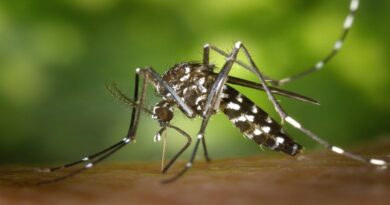Chandipura Virus Outbreak in Gujarat: What You Need to Know

New Delhi: Tragic Loss: Six Children Die in Gujarat Due to Chandipura Virus
A recent outbreak of the Chandipura virus in Gujarat’s Aaravalli district has led to the deaths of six children, with a total of 12 suspected cases being reported. Here’s what you need to know about this deadly virus.
What is Chandipura Virus?
Chandipura virus (CHPV), also known as Chandipura vesiculovirus, is an RNA virus that belongs to the Rhabdoviridae family, the same family as the rabies virus. It was first identified in Chandipura, Maharashtra, in 1965.
How Does it Spread?
The virus is primarily transmitted through the bites of infected sandflies (genus Phlebotomus). The exact mechanisms of transmission are still being studied, but the primary mode is through vector-borne transmission.
Who is at Risk?
Children aged 9 months to 14 years are particularly vulnerable to this virus. It is more prevalent in rural areas where sandflies are common.
Symptoms to Watch Out For
The symptoms of Chandipura virus infection can develop rapidly and include:
- Sudden onset of high fever
- Severe headaches
- Frequent vomiting
- Seizures or convulsions
- Confusion and irritability
- Changes in consciousness
- In severe cases, the infection can lead to coma and death
What Can Be Done for Treatment?
Currently, there is no specific antiviral treatment or vaccine for Chandipura virus. Management focuses on supportive care to relieve symptoms and prevent complications:
- Hospitalisation: Necessary for severe cases.
- Hydration: Important, especially if vomiting is severe.
- Antipyretics: Medications to reduce fever.
- Anticonvulsants: Used to manage seizures.
- Intensive Care: Needed for severe neurological symptoms.
Preventive Measures
Preventing the spread of Chandipura virus involves controlling the sandfly population and minimising human exposure:
- Insect Repellents: Use repellents to reduce the risk of bites.
- Protective Clothing: Wear long-sleeved clothing and use bed nets.
- Environmental Control: Reduce sandfly habitats through environmental management and insecticide spraying.
- Public Health Awareness: Educate communities in affected areas about the risks and preventive measures.
Recent Outbreak in Gujarat
In the recent outbreak in Gujarat, six children have died in the Aaravalli district. Five of these deaths occurred at the civil hospital in Himatnagar, Sabarkantha district. Samples have been sent to Pune’s National Institute of Virology (NIV) for confirmation.
The Chandipura virus is a serious pathogen that primarily affects children, leading to severe and sometimes fatal symptoms. Awareness, early diagnosis, supportive care, and preventive measures are crucial in managing the risk of infection.
Stay informed and take the necessary precautions to protect yourself and your loved ones from this deadly virus.
Follow for more information.






Hello! Would you mind if I share your blog with my facebook group? There’s a lot of folks that I think would really enjoy your content. Please let me know. Many thanks
You are my breathing in, I own few blogs and very sporadically run out from to post : (.
Pretty! This was a really wonderful post. Thank you for your provided information.
https://www.telqq.com Telegram群组,Telegram群组导航。收录Telegram上的优质频道和群组,打造一个高质量Telegram导航。TGNAV收录整理了Telegram上的许多优质频道、群组、机器人,帮助用户发现更多优质的群组。
It’s actually a nice and useful piece of info. I’m glad that you shared this useful info with us. Please keep us informed like this. Thanks for sharing.
I’ve read several excellent stuff here. Certainly value bookmarking for revisiting. I surprise how much effort you set to create this sort of fantastic informative web site.
lvt50s